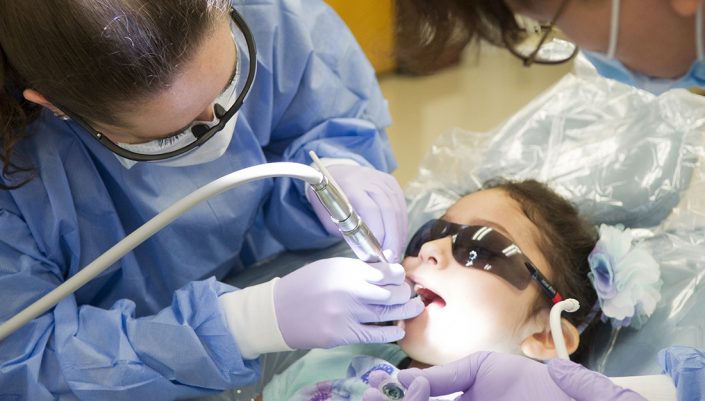Early dental visits may not prevent problems later, new study suggests

Image: School of Public Health
Preventive visits to a dentist for children younger than two may not reduce the need for more care later, according to a study published in the journal JAMA Pediatrics.
Early preventive dental care was associated with more frequent later treatment for tooth decay, more visits and more spending on dental care, as compared with no early preventive dental care, the study says
Preventive care delivered by primary care providers was not significantly associated with tooth decay-related treatment or expenditures, according to the study, which was produced by researchers at Texas A&M University and the University of Alabama at Birmingham
“We don’t think that going to the dentist is somehow causing these kids to have tooth decay,” said one author of the study, Michael Morrisey, a professor and head of the Department of Health Policy and Management at the Texas A&M School of Public Health. “At the same time, we want parents to know that early checkups probably won’t reduce the need for future dental procedures like fillings.”
Researchers analyzed Medicaid data from 19,658 children in Alabama, 25.8 percent of whom received preventive dental care from a dentist before age 2. The average follow-up time was almost four years.
Compared with similar children without early preventive dental care, those receiving such care had more frequent tooth decay-related treatment (20.6 percent versus 11.3 percent) and a higher rate of visits and higher annual dental expenditures ($168 versus $87) later in childhood.
However, the study authors stressed that the study has limitations. As only children on Alabama’s Medicaid, the publicly funded health care program for low-income Americans, were included, other populations may show different trends. The researchers also did not examine oral health behaviors such as teeth brushing or environmental ones like water fluoridation.

